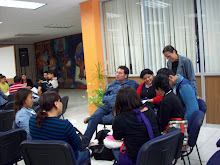Today in History
November 23
| ||
| 1248 | The city of Seville, France, surrenders to Ferdinand III of Castile after a two-year siege. | |
| 1785 | John Hancock is elected president of the Continental Congress for the second time. | |
| 1863 | Union forces win the Battle of Orchard Knob, Tennessee. | |
| 1863 | The Battle of Chattanooga, one of the most decisive battles of the American Civil War, begins (also in Tennessee). | |
| 1903 | Italian tenor Enrico Caruso makes his American debut in a Metropolitan Opera production of Verdi’s Rigoletto. | |
| 1904 | Russo-German talks break down because of Russia’s insistence to consult France. | |
| 1909 | The Wright brothers form a million-dollar corporation for the commercial manufacture of their airplanes. | |
| 1921 | President Warren G. Harding signs the Willis Campell Act, better known as the anti-beer bill. It forbids doctors to prescribe beer or liquor for medicinal purposes. | |
| 1933 | President Franklin D. Roosevelt recalls the American ambassador from Havana, Cuba, and urges stability in the island nation. | |
| 1934 | The United States and Great Britain agree on a 5-5-3 naval ratio, with both countries allowed to build five million tons of naval ships while Japan can only build three. Japan will denounce the treaty. | |
| 1936 | The United States abandons the American embassy in Madrid, Spain, which is engulfed by civil war. | |
| 1941 | U.S. troops move into Dutch Guiana to guard the bauxite mines. | |
| 1942 | The film Casablanca premieres in New York City. | |
| 1943 | U.S. Marines declare the island of Tarawa secure. | |
| 1945 | Wartime meat and butter rationing ends in the United States. | |
| 1953 | North Korea signs 10-year aid pact with Peking. | |
| 1968 | Four men hijack an American plane, with 87 passengers, from Miami to Cuba. | |
| 1980 | In Europe’s biggest earthquake since 1915, 3,000 people are killed in Italy. | |
| 1981 | US Pres. Ronald Reagan signs top secret directive giving the CIA authority to recruit and support Contra rebels in Nicaragua. | |
| 1990 | The first all-woman expedition to South Pole sets off from Antarctica on the part of a 70-day trip; the group includes 12 Russians, 3 Americans and 1 Japanese. | |
| 1992 | The first Smartphone, IBM Simon, introduced at COMDEX in Las Vegas, Nevada. | |
| 2005 | Ellen Johnson Sirleaf elected president of Liberia; she is the first woman to lead an African nation. | |
| 2006 | In the second-deadliest day of sectarian violence in Iraq since the beginning of the 2003 war, 215 people are killed and nearly 260 injured by bombs in Sadr City. | |
| 2011 | Yemeni President Ali Abullah Saleh signs a deal to to transfer power to the vice president, in exchange for legal immunity; the agreement came after 11 months of protests. | |
Born on November 23
| ||
| 1804 | Franklin Pierce, hero of the American war with Mexico and 14th president of the United States. | |
| 1878 | Ernest King, commander-in-chief of the U.S. fleet who designed the United States’ winning strategy in World War II. | |
| 1887 | Boris Karloff, film actor most famous for his role as the monster in the movie Frankenstein. | |
| 1888 | Adolph Arthur "Harpo" Marx, American comedian, one of the Marx brothers. | |
| 1897 | Willie "The Lion" Smith, jazz and ragtime pianist. | |
| 1923 | Gloria Whelan, poet, author primarily known for children’s and young-adult fiction; her novel Homeless Bird won the National Book Award for Young People’s Literature in 2000. | |
| 1943 | Andrew Goodman, civil rights activist; murdered by Ku Klux Klan in 1964 near Philadelphia, Miss. | |
| 1961 | John Schnatter, businessman; founded Papa John’s Pizza. | |
| 1980 | Ishmael Beah, authored A Long Way Gone: Memoirs of a Boy Soldier, a memoir of his time as a Sierra Leonean child solider in that country’s civil war. | |



No comments:
Post a Comment